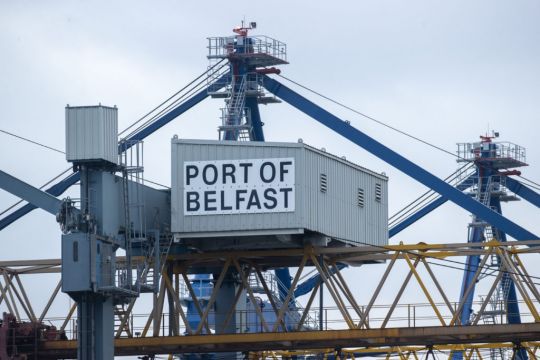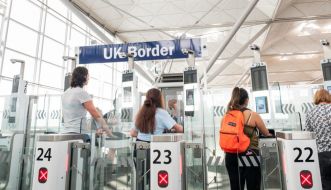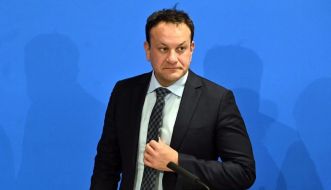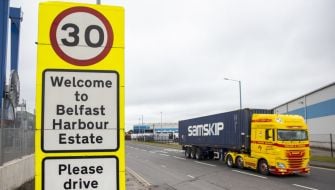Clarity is being sought around extending the grace period for supermarkets’ Irish Sea trade to independent retailers, the Northern Ireland Secretary said.
Supermarkets will have months extra at the end of the Brexit transition period to adjust their procedures to new regulatory requirements included in the Northern Ireland protocol.
Otherwise food supplies could have been disrupted from January 1st, with additional checks and paperwork delaying their transportation from Great Britain, retailers have warned.
Brandon Lewis said: “Our view is that grace period should apply to retailers and manufacturers moving their products into Northern Ireland and we are working to ensure we can get that clarity to people as soon as possible.”
The grace period for introducing the change will initially be for three months, with six months guaranteed for chilled meat products.
Mr Lewis said the UK government was seeking a permanent and long-term solution with EU counterparts.
He told the BBC’s Good Morning Ulster programme: “The whole point of that grace period is to give space to do that, not to create a cliff edge.
“We will be working with the EU to show there is a way to ensure there is a way that these products can flow properly, with confidence to the EU that it is not going to have any abuse of systems, but also confidence, more importantly, for the people of Northern Ireland that those products will continue to be available.”
Retail NI, which represents smaller independent traders in Northern Ireland, has said there was an urgent need to outline what businesses were covered by the grace period and whether independent traders and wholesalers were included.
It is part of a series of measures agreed by the UK and EU on how the Northern Ireland protocol will operate. They will apply whether a wider EU/UK trade deal is agreed or not.
The protocol will see Northern Ireland remain in the EU Single Market for goods, necessitating additional regulatory checks and certifications on animal-based products entering the region from Great Britain.
UK Cabinet Office minister Michael Gove confirmed to the House of Commons that the deal would enable the government to withdraw specific elements of the Internal Market Bill that would have overridden parts of the protocol in breach of international law.
While Northern Ireland will remain in the UK customs territory, under the terms of the protocol the region has to apply EU customs rules at its ports.
That means tariffs would be collected on goods moving from Great Britain to Northern Ireland if they were due for onward transportation to the Republic.
The requirement to collect tariffs on goods deemed “at risk” of onward transportation has been an ongoing source of contention.







